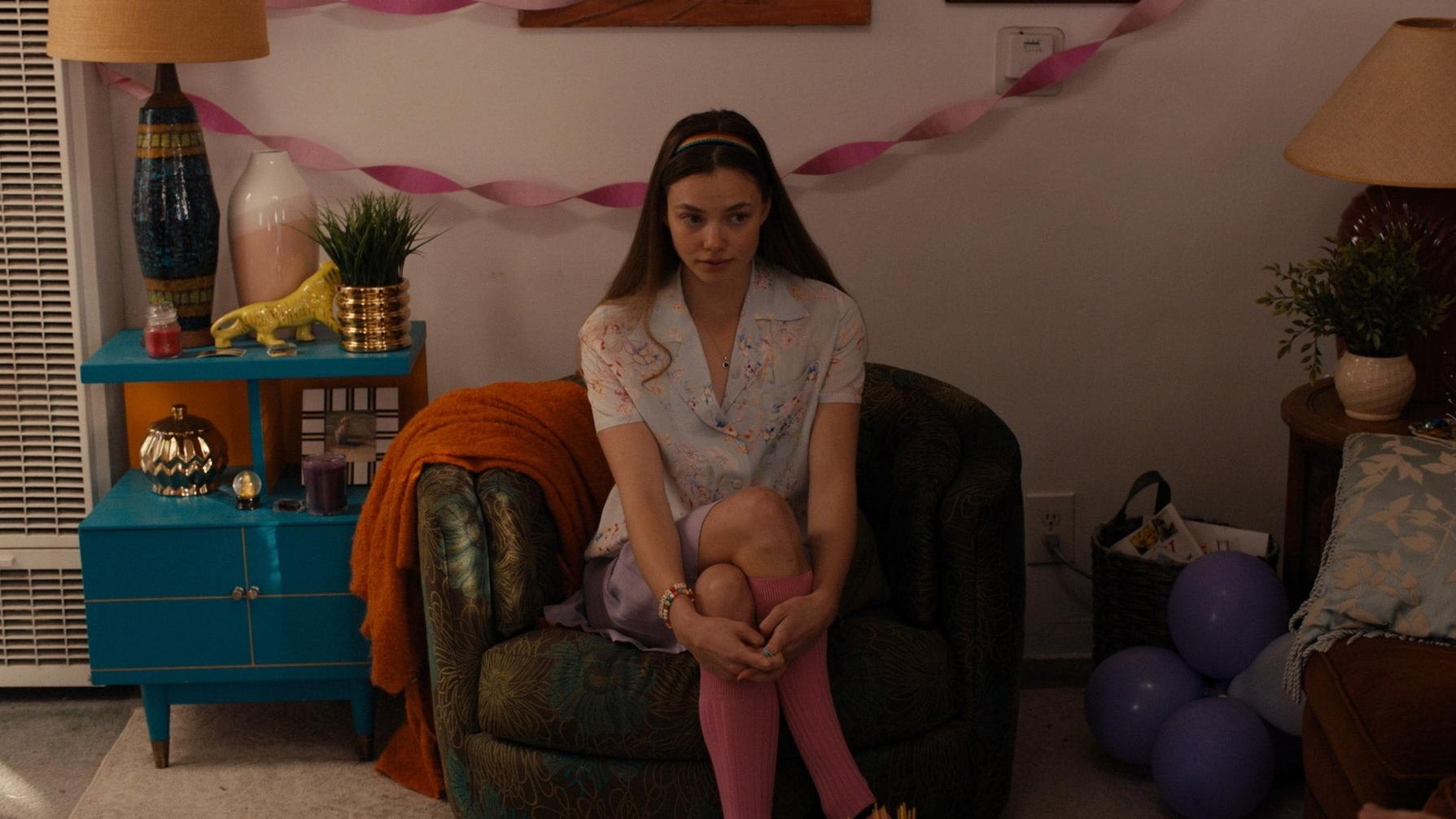Lena Dunham returns to moviemaking with the Sundance premiere of Sharp Stick
A naive twentysomething, a sex-starved himbo, and a quirky adoptive family star in Dunham's first feature since 2010

L.A. changes people, and not always for the worse. I’ve known hard-drinking Midwesterners who became yogis and got sober (well, “California sober”) within a year of relocating out west. California seems to have changed Lena Dunham as well: After laying low for a few years with some pretty serious health issues—and a litany of controversies, including accusations of white feminism and her defense of a Girls writer accused of sexual assault—Dunham has made a new feature film, her first since 2010's Tiny Furniture. So what has all that bright sunshine done for Dunham? Like your cousin who moved to L.A. and became an energy healer, it’s made her weirder.
Believe it or not, this is Dunham’s first appearance at Sundance as a filmmaker: Tiny Furniture premiered at SXSW, and Girls went straight to HBO. But Sharp Stick made its premiere last night out of competition, introduced by a festival programmer as a work that would spark conversation. (If Dunham is good at anything, it’s sparking conversation.)
Kristine Froseth stars as Sarah Jo, a sheltered 26-year-old woman who works with children with special needs and dresses and acts like someone half her age. There’s a reason for that, as it turns out: When she was a teenager, Sarah Jo was traumatized by a series of emergency surgeries to remove her reproductive organs, and has remained emotionally stuck in adolescence ever since. Now, she’s finally decided that she’s ready to start having sex. But she doesn’t have the social skills of her adopted sister, Treina (Taylour Paige), a budding influencer obsessed with her phone and whatever guy she’s crushing on that week. And so Sarah Jo fixates on Josh (Jon Bernthal), the married father of one of the children she looks after. At first hesitantly, then enthusiastically, this total himbo returns her advances.
Traces of Dunham’s personal history can be found throughout the film. Sarah Jo’s medical history reflects Dunham’s, given that the writer-director had a hysterectomy at the age of 31 to treat severe endometriosis. Given that fact, it makes sense that this is a film that’s fixated on fertility, pregnancy, and family both biological and chosen. (In a typical putting-it-all-out-there touch, Dunham plays Bernthal’s stressed-out, very pregnant wife, which must have been strange for someone working out some issues about not being able to have a biological child of their own.)
The film is also obsessed with sex, presenting indiscriminate, freewheeling horniness as an unequivocal good for our repressed main character. Sex positivity has long been a Dunham specialty, but Sharp Stick stands out for its positive attitude towards porn: Discovering her favorite porn star is a key step on Sarah Jo’s journey towards self-realization. And when the performer, Vance Leroy (Scott Speedman) eventually enters the narrative in the flesh (no pun intended), the results are—believe it or not—very sweet. Also sweet is Sarah Jo’s relationship with Treina and their mom, Marilyn (Jennifer Jason Leigh), a five-time divorcee and former L.A. party girl who used all that alimony to buy the apartment building where she and her daughters now live.
The main issues with Sharp Stick are the bumpy tonal shifts. In scenes where she eats yogurt like a baby, smacking her lips and letting it dribble down her chin, Sarah Jo feels like a character from another movie—namely, one by Miranda July, who realizes her dreamy L.A. strip-mall fantasias more fully and consistently than Dunham does here. Similarly, the costuming ranges from realistic to cartoonish, as do the performances. When Dunham pushes the surrealism, it’s an intriguing new step for her, but in the end she can’t seem to help but regress to rich people bickering.
The least successful transition in Sharp Stick is a pivot midway through from earthbound (if quirky) dramedy into broad sex comedy; the effect is of two half-films awkwardly smushed into one. Still, there are interesting ideas about sex, relationships, bodies, family, and how we present ourselves to the world in this hodgepodge of a film. And Dunham does show progress, both in terms of the diversity of her casting and pushing the limits of her style. If you’re not already a fan of her work, this film probably won’t convert you. But there’s a specific wavelength of person who may find it touching in a very personal way. Look at me—one L.A. movie, and I’m already talking about vibes.